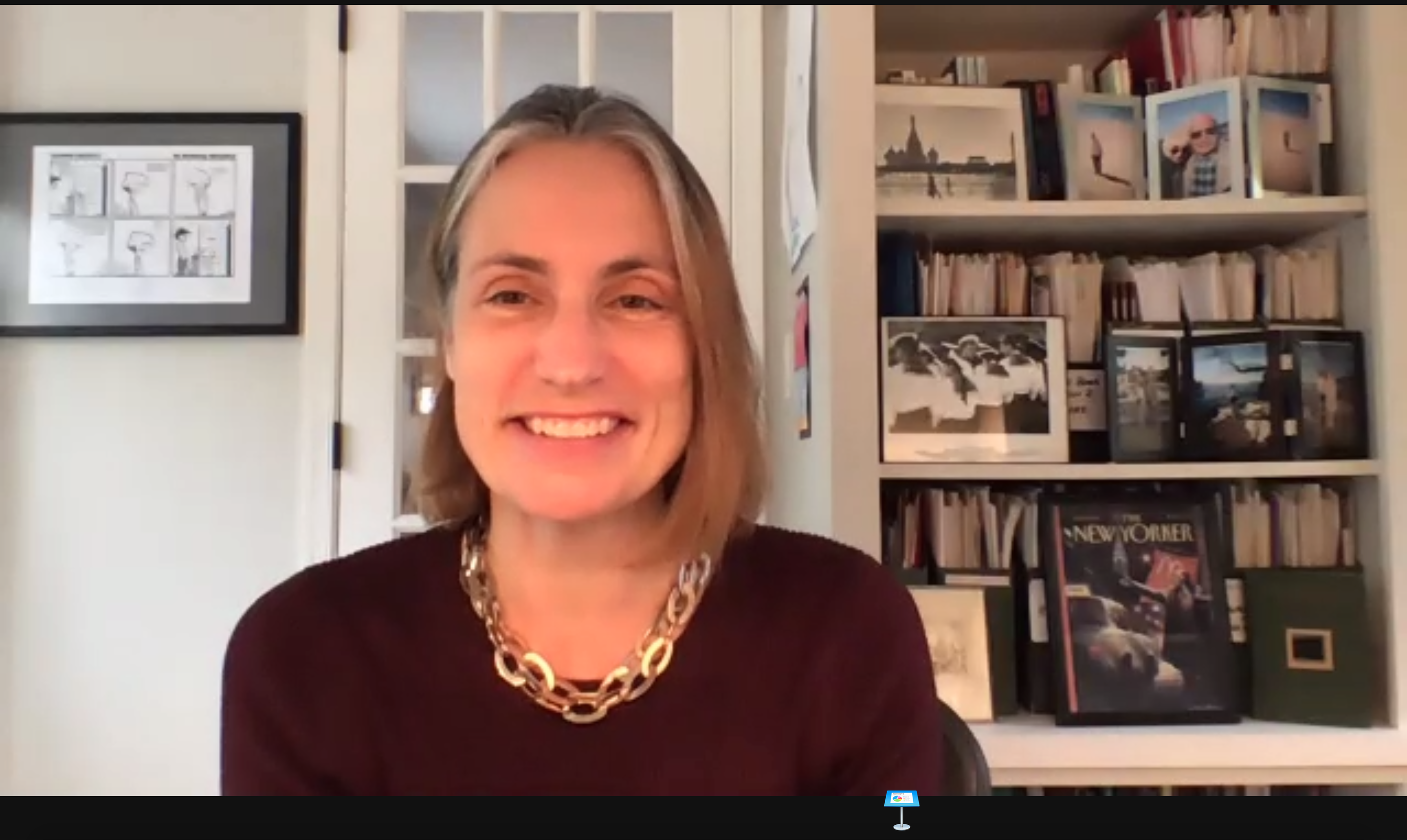Former Trump administration top Russia advisor Fiona Hill said Russia is sowing doubt about U.S. democracy in the U.S. in the lead-up to the 2020 election, focusing efforts on psychologically undermining the election.
Claims of Russian interference in the 2016 elections, taking on the form of online disinformation, computer hacks and leaked campaign files, have been corroborated by U.S. intelligence services.
The extreme nature of Russia’s attacks against the U.S. became overtly apparent with the 2016 election.
“In 2016, in many respects, we had a perfect storm of events,” Hill said, referencing the fractured nature of politics in 2016. With the large field of contenders in the Republican presidential primary, as well as the contentious split between Hillary Clinton and Bernie Sanders on the Democratic side, the U.S. was in a particularly vulnerable position.
Hill said Russian President Vladimir Putin had a “particular antipathy” toward Clinton, whom he believed would take a harsher stance again Russia if elected to the presidency.
Moving forward, Hill said, one of the biggest domestic challenges the U.S. will face is figuring out how to get back to thinking about Russia as a “national security crisis and an issue to resolve,” rather than an object of contention within domestic politics.
“When they interfered in the election, Russia became a part of our domestic politics and an object of political partisanship,” Hill said.
Hill said she had not yet reached a conclusion about the possibility of Russian interference in the 2020 elections. Thus far, Russia has employed a psychological operation, more than anything else, targeted directly at the U.S.’s faith in democracy, according to Hill.
“I think they are actually hedging at this particular point to see where [the 2020 election] is headed,” Hill said. “Because there are already plenty of domestic efforts to weaken Biden, many driven by the Republican Party and the Trump campaign, with Trump himself being a weak presidential candidate, the Russians don’t really have to do much.”
“What they did in 2016 cast a big cloud over our democracy, suggesting that somebody else might have the hand on the levers of our democratic system,” she added.
The psychological operation — casting doubt on the U.S.’s democratic system — has the potential to do much more damage than physical interference, which still remains a possibility, Hill said.
“We decried the lack of free and fair elections in Russia and the quality of Russian democracy,” she said. “They’re pushing it right back at us. The goal is to weaken U.S. international leadership and point to us as being incapable of carrying out an election.”
Beyond domestic affairs, the U.S.’s biggest foreign policy challenge is figuring out “how to balance off what appears to be Russia’s continued desire to be engaged in a geopolitical struggle when we don’t want to be,” according to Hill.
Hill, a key witness in impeachment hearings against Trump last year, attributes much of the current situation to the U.S.’s grave misunderstanding of Russia’s “desire to overturn a post-Cold War settlement.”
“We just expected [Russia] to become part of our international institutional arrangements, while Russia had made it very clear that this kind of one-sided perspective was not going to work,” Hill said. “The United States and NATO had already tried to put together a NATO Russia Council and to encourage Russia to engage with the United States in a potentially strategic partnership. This idea of revisionism and still being locked in a geopolitical conflict was anathema to the west.”
The webinar was moderated by Steven Pifer, William J. Perry Fellow at the Stanford’s Freeman Spogli Institute for International Studies.
Pifer, who had previously worked with Hill at the Brookings Institute, described Hill as “one of the smartest and most knowledgeable people I know regarding Russia.”
Over 200 participants joined Hill’s Zoom webinar.
Contact Nina Iskandarsjach at ninaisk ‘at’ stanford.edu.
